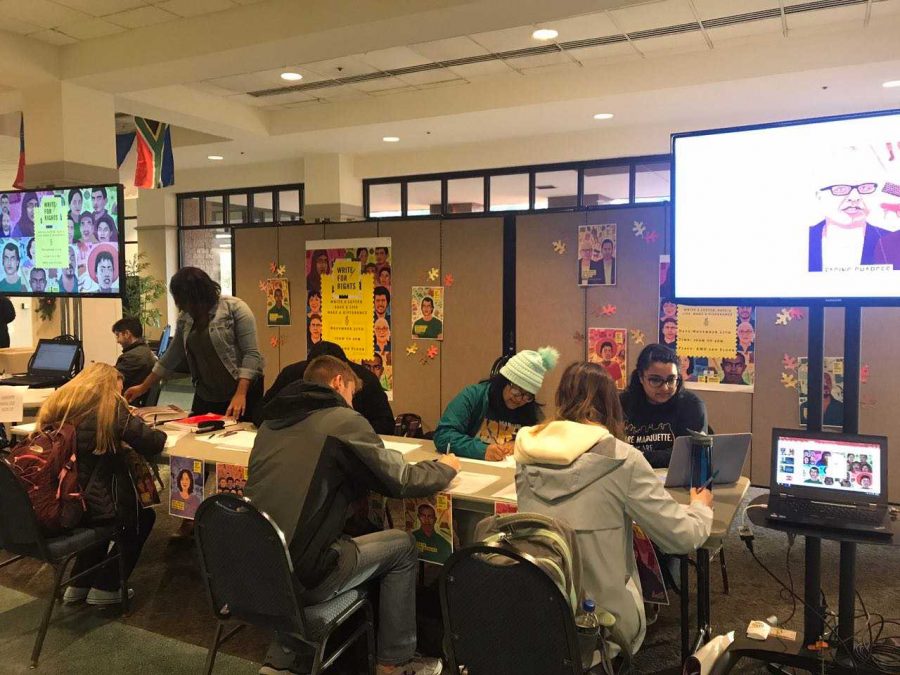In Istanbul, Turkey, two leaders of an Amnesty International chapter were convicted as being a part of a terrorist group, just for being a part of the organization.
Though the newly formed Amnesty chapter at Marquette is not under the same kind of threat, they are working to free their fellow members abroad, and use their voice to petition other acts of injustice around the world.
The University’s Amnesty International chapter held a Write for Rights event in the Alumni Memorial Union Nov. 27.
Every year, Amnesty chooses 10 to 15 cases of humanitarian crisis around the world. Students were encouraged to write letters to the individuals of a case or the institutions responsible in hope of pressuring them to let the individuals go.
Cases are chosen based on if Amnesty believes they will be impacted specifically by writing letters in mass amounts. The 10 cases on display at the event included people from Madagascar, Turkey and Egypt.
Shabi Haider, a senior in the College of Health Sciences and Marquette’s Amnesty chapter President, said that in Madagascar, someone was arrested for silently protesting saving the Madagascar forest in a restaurant.
In addition to this case, several individuals around the world have been imprisoned for speaking their mind, which is in direct violation of the United Nations Article on human rights, or have been falsely accused of a crime and are being held in custody when they have not broken any laws.
Podcast by Nicholas Cordonnier
“(Write for Rights) is a good opportunity for students to expose themselves to different circumstances around the world and how freedom of speech can be taken for granted. Here we able to create an Amnesty chapter and not get arrested,” Shabi said. “It broadens your views but shows we all have this innate desire to express ourselves to stand up for rights.”
Haider reached out to professors all over the university and received a positive and eager response.
“Students should be active in the world and know more than what is happening at Marquette because we live in a bubble here,” Julia Grubich, a Spanish instructor, said. “Events like this show that we are a community that cares beyond what our students do. We want them to be people of the world and go forth and set the world on fire like St. Ignatius said to do.”
Instead of just writing letters to the authorities, students were also able to write personal letters, which could be more creative, to the individuals to let them know they are not forgotten.
While the chapter is not aiming for a certain amount of letters, they said they believe there is strength in numbers.
“The greater purpose in numbers shows there are people watching who want to take action. We are Jesuit campus, (so) we practice ideals and are committed to service and a beloved community,” Yuvraj Sandhu, a junior in the College of Health Sciences and administrator on the Amnesty board, said. “This captures the idea of spreading our commitment as a university that wants to be the difference to people who are in their own way practicing those virtues.”


